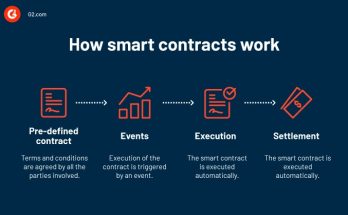Living alone offers a unique sense of independence, but it also comes with financial responsibilities that can feel more intense than when costs are shared. Without a roommate or partner to split expenses, every bill, grocery run, and unexpected repair falls squarely on your shoulders. That reality can be daunting, especially if you’re working with a modest income or trying to build savings. But with a thoughtful approach, living solo doesn’t have to mean living expensively. It’s entirely possible to enjoy the autonomy of your own space while keeping your finances in check.
The first step is understanding your baseline expenses. When you live alone, budgeting becomes more than a recommendation—it’s a necessity. You’re the sole decision-maker, which means you have full control over how your money is allocated. Start by tracking your spending over a few months to identify patterns. You might discover that your utility bills spike during certain seasons or that food delivery is quietly eating into your budget. These insights allow you to make informed adjustments. For instance, switching to energy-efficient appliances or adjusting your thermostat habits can reduce monthly costs without sacrificing comfort.
Food is one area where solo living can either be a money-saver or a money pit. Cooking for one requires a bit of strategy, especially when it comes to avoiding waste. Buying in bulk may seem economical, but if half of what you purchase spoils before you use it, the savings disappear. Instead, focus on versatile ingredients that can be used across multiple meals and learn to batch cook and freeze portions. This not only saves money but also time. Planning meals ahead and shopping with a list helps avoid impulse buys and ensures you’re making the most of what you already have in your kitchen.
Housing costs are typically the largest expense for solo dwellers, so optimizing your living situation can have a big impact. If you’re renting, consider whether your current space matches your actual needs. A studio or one-bedroom might be more cost-effective than a larger unit, especially if you’re not using the extra space. Location also plays a role—living slightly farther from city centers can reduce rent, though it’s important to weigh that against transportation costs. If you own your home, refinancing your mortgage or appealing your property taxes could lead to meaningful savings over time.
Utilities and subscriptions often fly under the radar but can quietly drain your budget. When you live alone, you have the flexibility to tailor your usage to your lifestyle. Turning off lights when you leave a room, unplugging devices, and using smart power strips can lower electricity bills. Water usage can be reduced with low-flow fixtures and mindful habits. As for subscriptions, it’s worth reviewing them periodically. Streaming services, apps, and memberships can accumulate quickly, and you may find that you’re paying for things you rarely use. Canceling or pausing these services can free up funds for more essential needs or savings goals.
Transportation is another area where solo living presents both challenges and opportunities. Without someone to share rides or fuel costs, commuting can be expensive. However, living alone also means you can choose transportation methods that suit your budget. Public transit, biking, or walking can significantly reduce expenses compared to owning a car. If a vehicle is necessary, maintaining it regularly and shopping around for insurance can help keep costs manageable. Carpooling with colleagues or using ride-sharing strategically can also offset some of the financial burden.
Entertainment and socializing are important for mental health, but they don’t have to be costly. Living alone doesn’t mean isolating yourself, and there are plenty of budget-friendly ways to stay connected. Hosting potlucks instead of dining out, attending free community events, or exploring local parks and museums can provide meaningful experiences without straining your wallet. Being intentional about how you spend your leisure time helps ensure that it aligns with your financial priorities while still enriching your life.
Emergency preparedness is especially important when you’re on your own. Without a second income to fall back on, building an emergency fund becomes a top priority. Even small, consistent contributions can create a buffer that protects you from unexpected expenses like medical bills, job loss, or home repairs. Automating savings transfers and treating them like a fixed expense can make the process easier and more sustainable. Having this financial cushion not only provides peace of mind but also prevents you from relying on high-interest credit in times of need.
Finally, mindset plays a crucial role in saving money while living alone. It’s easy to fall into the trap of thinking that frugality means deprivation, but in reality, it’s about making choices that support your long-term well-being. When you view budgeting as a form of self-care and financial planning as a way to empower your future, the process becomes more rewarding. You’re not just cutting costs—you’re creating space for freedom, security, and growth. Living alone gives you the autonomy to shape your financial life exactly how you want it, and with a bit of intention, that life can be both fulfilling and financially sound.




